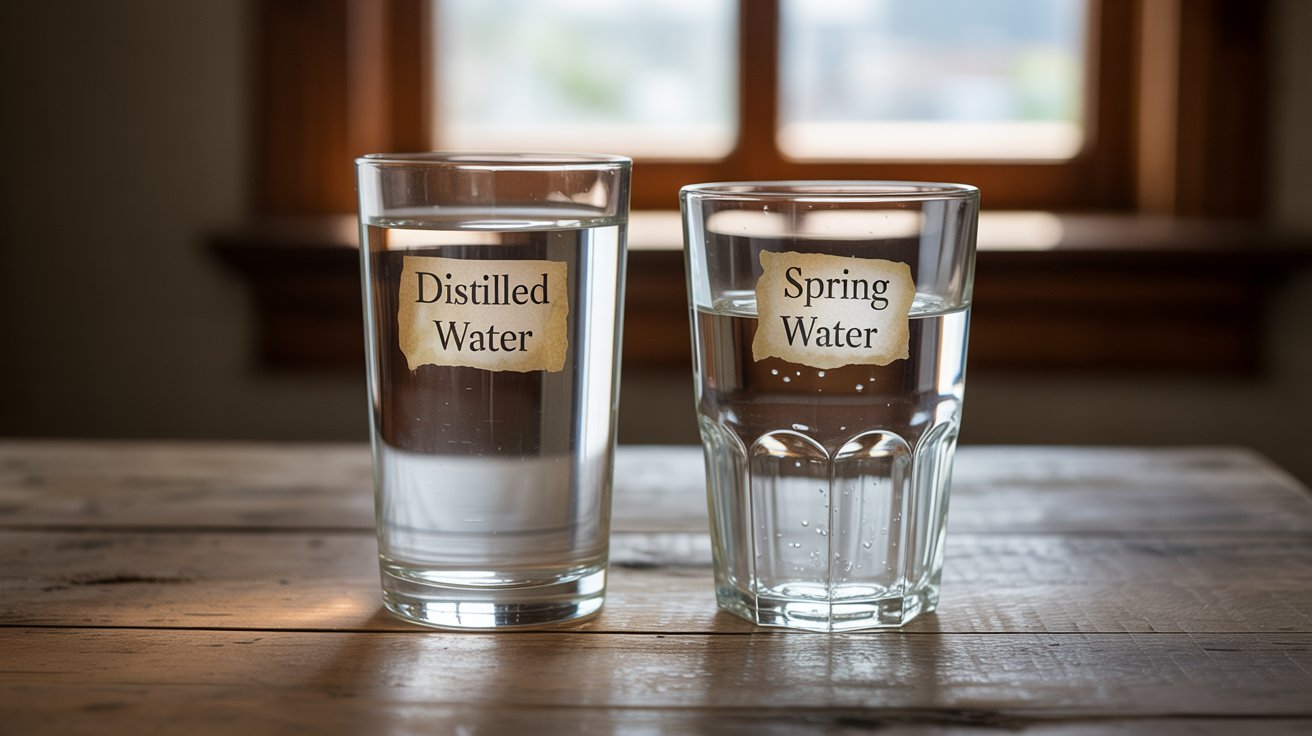Water is an essential element for life, and it plays a crucial role in our daily lives. From staying hydrated to cooking and cleaning, water is a fundamental necessity. With the increasing awareness of the importance of water quality, there are various types of water available in the market, each with its own unique characteristics and benefits. Two popular options are distilled water and spring water, both of which have their own distinct qualities and uses.
Distilled water is produced through a process of distillation, which involves boiling water to create steam and then condensing it back into a liquid form. This process removes impurities and contaminants from the water, resulting in a purer form of water. On the other hand, spring water is sourced from natural springs, where it is naturally filtered through layers of rock and soil, picking up minerals and nutrients along the way. Both types of water have their own set of advantages and potential health benefits, making them popular choices for consumers.
The Process of Distillation
The process of distillation involves heating water to create steam, which is then collected and condensed back into a liquid form. This process effectively removes impurities, contaminants, and minerals from the water, resulting in a purer form of water. Distilled water is free from chemicals, bacteria, and other harmful substances, making it a popular choice for drinking and cooking. The purity of distilled water also makes it ideal for use in medical and laboratory settings, where precise and uncontaminated water is required.
The benefits of distillation include the removal of potentially harmful substances such as lead, arsenic, and nitrates, which may be present in tap water. Additionally, distillation can also remove chlorine and other chemicals used in water treatment processes. This results in a clean and pure form of water that is free from any taste or odor, making it a popular choice for those who are sensitive to the taste of tap water. Overall, the process of distillation provides a reliable method for producing high-quality drinking water that is free from impurities and contaminants.

The Source of Spring Water
Spring water is sourced from natural springs, where it is naturally filtered through layers of rock and soil. This natural filtration process allows spring water to pick up minerals and nutrients from the surrounding environment, giving it a unique composition and potential health benefits. The presence of minerals such as calcium, magnesium, and potassium in spring water can contribute to its taste and potential health benefits. These minerals are essential for various bodily functions, including bone health, muscle function, and nerve transmission.
In addition to minerals, spring water may also contain trace amounts of other beneficial substances such as electrolytes and antioxidants. These compounds can contribute to the overall health benefits of spring water, making it a popular choice for those looking for a natural and refreshing source of hydration. The natural source of spring water also means that it is free from the chemicals and additives commonly found in tap water, making it a popular choice for those seeking a more natural and pure form of hydration.
Health Benefits
When it comes to health benefits, both distilled water and spring water have their own unique advantages. Distilled water is free from impurities and contaminants, making it a reliable source of clean and pure hydration. The removal of minerals and other substances from distilled water can make it an ideal choice for those with specific health concerns or sensitivities to certain compounds. Additionally, the purity of distilled water can make it a popular choice for detoxification purposes, as it provides a clean and neutral base for removing toxins from the body.
On the other hand, spring water contains minerals and nutrients that can contribute to overall health and well-being. The presence of essential minerals such as calcium, magnesium, and potassium can support various bodily functions, including bone health, muscle function, and nerve transmission. Additionally, the natural source of spring water means that it is free from additives and chemicals commonly found in tap water, making it a popular choice for those seeking a more natural form of hydration. Overall, both distilled water and spring water have their own set of potential health benefits, making them suitable choices for different individuals based on their specific needs and preferences.
Environmental Impact
When considering the environmental impact of producing and consuming distilled water versus spring water, there are various factors to take into account. The production of distilled water involves energy-intensive processes such as boiling and condensation, which can contribute to greenhouse gas emissions and resource consumption. Additionally, the packaging and transportation of distilled water can result in waste generation and carbon emissions, especially if the water is sourced from distant locations.
On the other hand, spring water is sourced from natural springs, which may require less energy and resources compared to the production of distilled water. However, the extraction and bottling of spring water can still have environmental impacts, including habitat disruption and waste generation. Additionally, the transportation of spring water to different regions can result in carbon emissions and resource consumption. Overall, both distilled water and spring water have their own environmental considerations, and consumers may want to consider factors such as local sourcing and packaging materials when making their choice.
Cost and Accessibility
In terms of cost and accessibility, there are various factors to consider when comparing distilled water and spring water. Distilled water is widely available in various forms, including bottled water, jugs, and home distillation systems. The cost of distilled water can vary depending on factors such as packaging size and brand, but it is generally considered to be an affordable option for most consumers. Additionally, the widespread availability of distilled water means that it is accessible in many regions, making it a convenient choice for those looking for a reliable source of clean and pure hydration.
On the other hand, spring water may be less widely available compared to distilled water, especially in certain regions or remote areas. The cost of spring water can also vary depending on factors such as brand and packaging size, but it is generally considered to be a premium option compared to distilled water. Additionally, the accessibility of spring water may be limited in some regions, making it less convenient for those who do not have easy access to natural springs or bottled spring water. Overall, both distilled water and spring water have their own cost and accessibility considerations, and consumers may want to consider factors such as availability and affordability when making their choice.
In conclusion, both distilled water and spring water have their own unique characteristics and potential benefits. Distilled water is produced through a process of distillation, which removes impurities and contaminants from the water, resulting in a purer form of hydration. Spring water is sourced from natural springs, where it picks up minerals and nutrients along the way, giving it a unique composition and potential health benefits. When considering factors such as health benefits, environmental impact, cost, and accessibility, consumers may want to weigh their individual needs and preferences when choosing between distilled water and spring water. Ultimately, both options provide reliable sources of hydration with their own set of advantages, making them suitable choices for different individuals based on their specific requirements.



